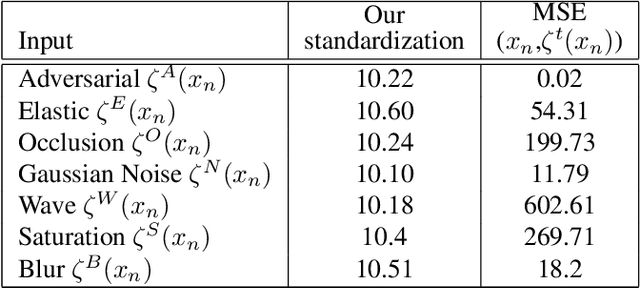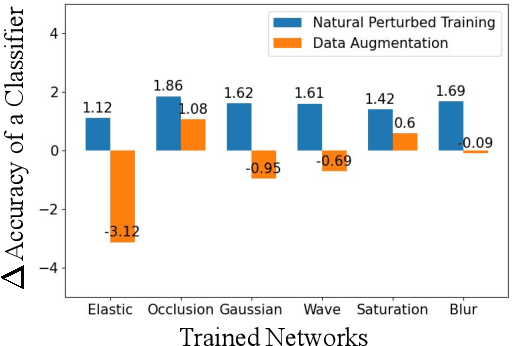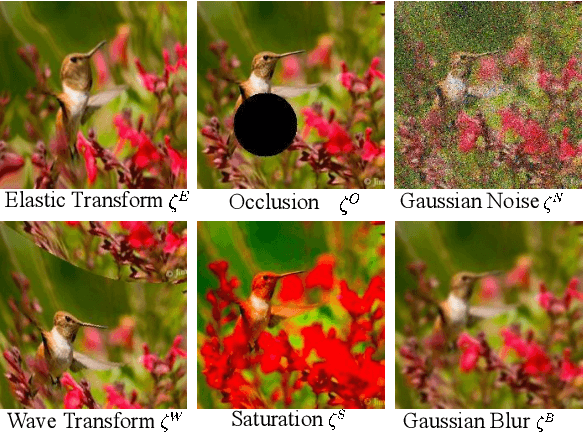Natural Perturbed Training for General Robustness of Neural Network Classifiers
Paper and Code
Mar 21, 2021



We focus on the robustness of neural networks for classification. To permit a fair comparison between methods to achieve robustness, we first introduce a standard based on the mensuration of a classifier's degradation. Then, we propose natural perturbed training to robustify the network. Natural perturbations will be encountered in practice: the difference of two images of the same object may be approximated by an elastic deformation (when they have slightly different viewing angles), by occlusions (when they hide differently behind objects), or by saturation, Gaussian noise etc. Training some fraction of the epochs on random versions of such variations will help the classifier to learn better. We conduct extensive experiments on six datasets of varying sizes and granularity. Natural perturbed learning show better and much faster performance than adversarial training on clean, adversarial as well as natural perturbed images. It even improves general robustness on perturbations not seen during the training. For Cifar-10 and STL-10 natural perturbed training even improves the accuracy for clean data and reaches the state of the art performance. Ablation studies verify the effectiveness of natural perturbed training.
 Add to Chrome
Add to Chrome Add to Firefox
Add to Firefox Add to Edge
Add to Edge